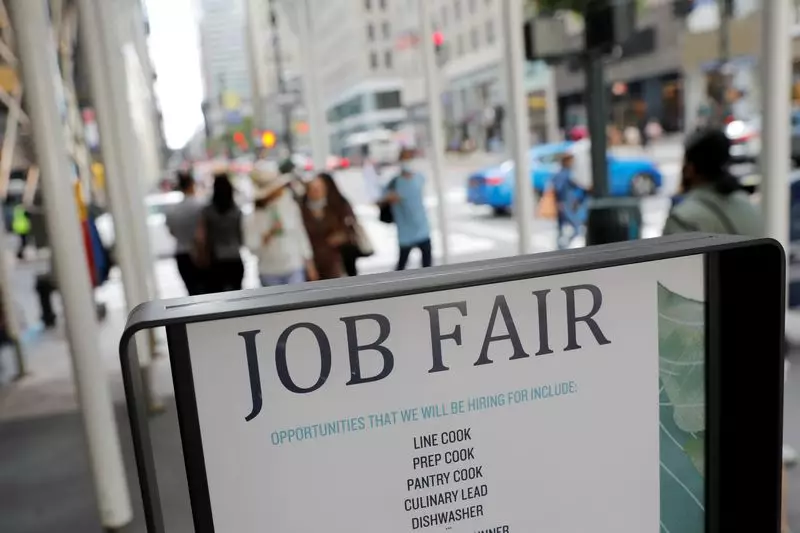The latest data from the Labor Department reveals a decline in the number of Americans filing new jobless claims. This decrease in layoffs signals a positive trend in the labor market and helps alleviate concerns about its deterioration. The report also indicates a reduction in unemployment rolls, reaching levels not seen since mid-June. This development suggests that the Federal Reserve may not need to implement a 50 basis points interest rate cut, with most economists anticipating a more moderate quarter-point reduction to address solid domestic demand.
Chief economist Ian Shepherdson from Pantheon Macroeconomics interprets the jobless claims data as consistent with a gradual rise in unemployment rather than the sharp increase reported in July. Initial claims for state unemployment benefits decreased by 5,000 to a seasonally adjusted 227,000 for the week ending August 31, marking the lowest level since early July. Although economists had predicted 230,000 claims, the actual figures reflect a downward trend driven by factors such as reduced seasonal distortions and diminishing impacts from events like Hurricane Beryl.
Insights from the Federal Reserve
The Federal Reserve’s “Beige Book” report echoes the labor market trends, mentioning that employment levels have remained relatively stable with slight increases recently. While some districts reported adjustments in shifts and hours, as well as unfilled positions and reduced headcounts through attrition, instances of layoffs were scarce. However, job candidates are facing challenges in securing positions, experiencing longer wait times and growing difficulties in the job market.
Employment Indicators and Market Response
The data on the number of individuals receiving benefits after the initial week of aid, which serves as a proxy for hiring, showed a decrease of 22,000 to a seasonally adjusted 1.838 million in the week ending August 24. This figure represents the lowest level since mid-June, suggesting positive developments in recruitment. Despite these favorable numbers, U.S. stocks opened lower, the dollar depreciated against a basket of currencies, and U.S. Treasury prices saw an increase in response to the data.
The jobless claims data does not impact the forthcoming employment report for August, scheduled for release on Friday. While nonfarm payrolls are expected to rise by 160,000 jobs following a 114,000 increase in July, there remains a potential downside risk to this forecast. The ADP National Employment Report, which showed a moderation in private payrolls with a gain of 99,000 jobs in August, highlights the uncertainty in predicting employment figures accurately. Economists caution that the ADP report may not always align with the Bureau of Labor Statistics’ comprehensive employment report, underscoring the challenges in anticipating labor market trends accurately.


Leave a Reply